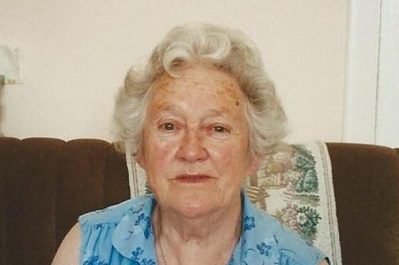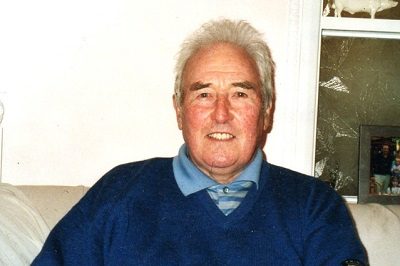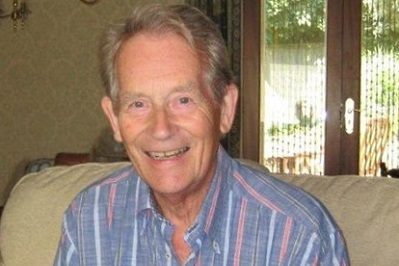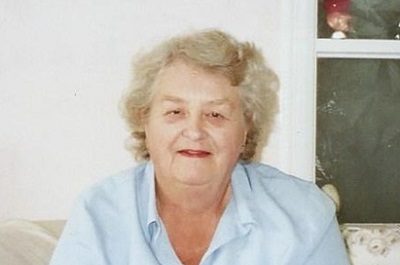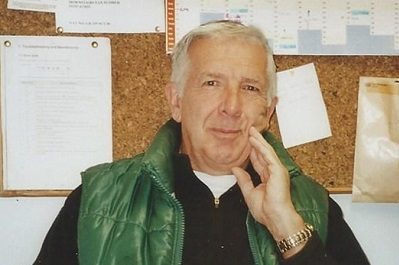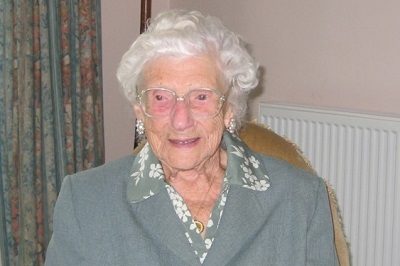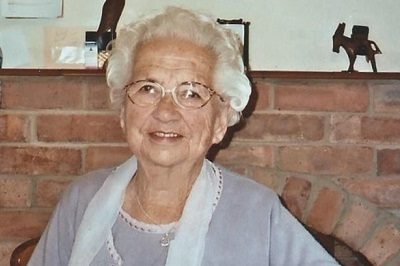Memories as children of D-Day
Editorial: Transcriptions by Charlie Shawcross. Press the play button to hear the audio clips from each resident.
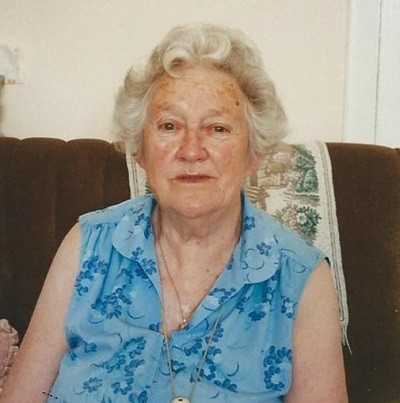
Army in the woods by Pearl House, née Pierpoint
Well we had the army, the Canadian army down in the bottom Woods in Rowlands, and we had the Royal Air Force in the woods up at Forestside. The French naval camp was down towards Emsworth and there was a Stockheath naval camp which was more or less Leigh Park way and we knew something was going on because the troops were coming all along the roads and the village green was covered with tents and the troops were all down the road where I lived with my mother and father and you would see them one day and the next day they’d be gone the next and another lot would appear and one night we went to the British Legion Hall in Emsworth a dance and there was all this terrific noise which drowned out the band so we went outside and it was all the planes towing the gliders over for the Invasion. The sky was just black with them it was incredible.
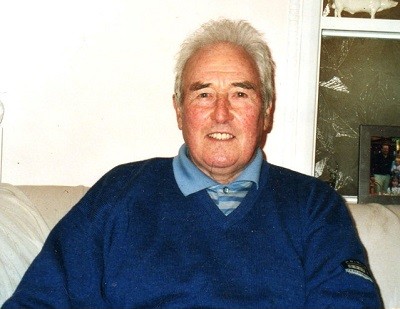
Memories of troops and trucks by Robert Farr
My memories of D-Day started, most probably, in March (1944) when all the roads had yellow lines and a number in the corner of each oblong – this was for the vehicles to come into. We woke up one morning to find all these parking spaces taken. They started with the lighter trucks like half tracks, and then gradually they moved on and heavier vehicles came in and it ended up with “Matadors” – these are big army lorries that carry big guns, and they broke all the pavements up.
At the beginning of May (1944) really, and all along The Green where all the tanks were parked with their backs to the wall and there was so much traffic – military traffic. At school, as all we did was look out of the windows, we were taken down into The Thicket where we had our lessons down in the bracken so that we weren’t disturbed, or not so much disturbed as our attention wasn’t taken, otherwise our head were out of the window all the time.
Various people took soldiers in and we used to have Sergeant Taylor for lunch with us on a Sunday: he had come from Huddersfield.
Did he bring sweets or anything? No, but of course when they were going away they used to give all their money to us and the idea was to stand by a little girl because they used to like throwing money to the little girls but she couldn’t pick it all up you see.
But this was constant, you know, the comings and goings and the vehicles got heavier and heavier. At the end of the war the German Prisoners of War made up the road. They did Redhill Road. The Italian Prisoners of War tended to work on the farms, but the German Prisoners of War rebuilt the pavements and the roads.
One day, we were all ushered out of school. We didn’t know what was going on and we were all lined up along the road, then the King came past because he just been along to review the troops in preparation for D-Day. He was riding in an enclosed car as I remember it, and he waved, of course, and we waved back to him. No flags.
All the rations and the cans of petrol and ammunition were on the pavements. There was a cookhouse on the rough ground at the end of Castle Road and Redhill where there are now two houses built. First thing in the morning, my friend Quentin Moat and myself used to go down there and serve out the breakfasts, then go on to school.
Then in the evening we used to go down and help serve tea cum supper. Very often at the end of the day we were sent home with quite a lot of chunky pieces of cheese and biscuits, and if there were remnants, the big pots of jam with a couple of inches of jam in them. My mum and my aunts and my grandmother were all very pleased to receive biscuits and cheese.
At the time of Dieppe, we used to go down to the Arches and get a lift on the Bren gun carrier and they used to go up Redhill and fill up at Bill Barratts petrol pump. Then we would ride back down with them and wait for another one to come because there was just a continual stream of these going up and down. So we used to have a lot of rides in Bren gun carriers.
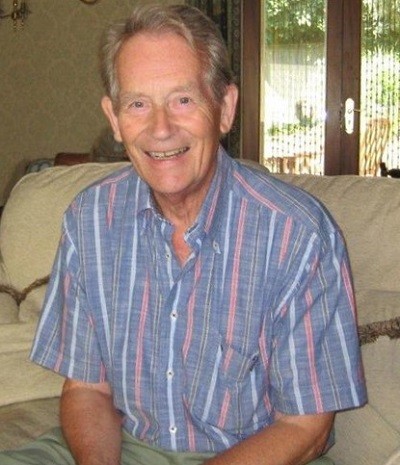
Tanks and a plane by Robert Winnicott
I have my strongest recollections because there were the tanks all parked underneath the wall, along the village green. The soldiers used to practice and come from the brickworks through the garden area and over the wall, because they were practising their invasion tactics. So, we had to keep out of the garden whilst that was going on. In the evenings, again we weren’t allowed to speak to the soldiers, but we found that we could clamber up a tree trunk and sit on the wall and we were able to talk to them in that fashion. I was offered the chance of going in one of the tanks, so I clambered up the tree over the wall and dropped down the other side. The following day, I had this fantastic drive in the turret area of the tank, up to the village green to the chapel end and back again. I do recollect that there was a lady I didn’t like at all walking on the other side of the village green. I was allowed to train the gun on who I liked, so as this tank was going along the village green this poor woman had the gun trained on her all the time as I was going down the green and back again. The next day they asked if I’d like to come again and I said yes. they let me drive the tank, but in fact when the following day came I went in the turret for the second time and I drove in the tank up to one end of the green and back. So, the third day I was really quite excited at being able to drive this tank and I disappeared over the wall after breakfast to speak to them: but they had gone, of course, because D-Day had started. I don’t think I appreciated it what was going on at the time, because my disappointment was far too great. But I do recall now looking at the area where the tanks had been and finding all sorts of mess and debris that had been left behind and all the oily tarmac areas. Also finding out, it wasn’t just toothpaste that came in squeezy things but also things like shoe polish. I was very impressed to find this and obviously on reflection, these guys had been keeping their Kitty in good order.
I do have a recollection of the plane being shot down at Stansted. My uncle who was in the police force in Southampton, was staying with us at Rowlands Castle at that period and he went off to do what he thought a policeman ought to do and make sure everything was OK. I was very impressed when he came back with blood on his handkerchief and I assumed he had shot the German, but in fact he had just cut himself on some brambles or whatever.
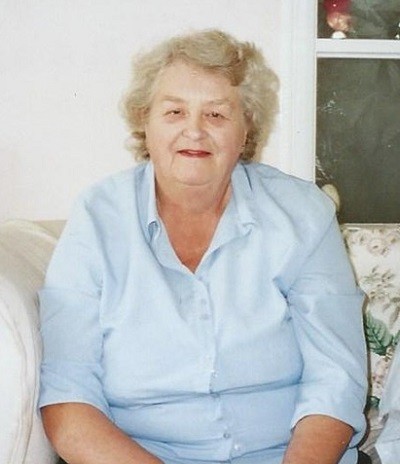
Darts and all the flowers by Jennifer Bussell, née Winnicott
All the usual things that go on in Garden Parties of old; rolling for various things: darts and all the flowers in the flower tent and there were pony rides in the field. In the winter, the Labour Party used to run dancing classes on a Friday night. It was ballroom one Friday and square dancing or country dancing the other Friday and everybody used to attend regardless of their political affinities.
I lived through war time, so if I caught the train home and it was dark and there were no lights, other than the glimmer from the station, but as long as you followed the path down from the station to Bowes Hill, which was a railway line, which you can still just see nowadays, then you could get yourself across to the other side and feel your way against the wall, Wiggins wall, go across the road and get myself home to Deer Leap.
Of course, D-Day and the soldiers were in the village, the Canadians were installed in Stansted.
There were soldiers also all over The Green, all under Deer Leap wall. Small tanks I can’t tell you what they were called but were backed under Deerleap wall. We had an old bit of iron fencing leaning against the wall, so we climbed up so we could look over and see what they were doing and we got quite friendly with these soldiers, whether they were washing, shaving or eating their dinners and just had a chat with them over the wall and in fact my mother used to have a chat over the wall in the evenings. I noticed one particular evening that they were getting tidy and when we woke up the next morning they were gone, it was D day.
My husband tells the tale of trying to get to school at Churchers; he caught the train to Petersfield and they couldn’t cross the road for an hour and a half to get into Churchers, but the Masters couldn’t say anything as they were waiting too.
Finchdean Road was jam-packed from one end to the other for about three days. It was just amazing; they were there, and they were gone in such a short space of time. Also at D-Day time or just before, the Canadians, living under tents at Stansted used to be entertained by local people in the village. My mother always used to have four or five of them that used to come in most evenings just to have a bit of warmth a cup of tea a chat and often played cards. Another couple who also lived in the house in rooms in Deer Leap, used to entertain a particular couple of lads and I know that Mrs Benson used to darn and re darn their socks for them. It was obviously very homely and made them feel welcome. One particular gentleman, a Canadian, used to have food parcels sent over for us as children. Once, we got a Dundee cake at Christmas.
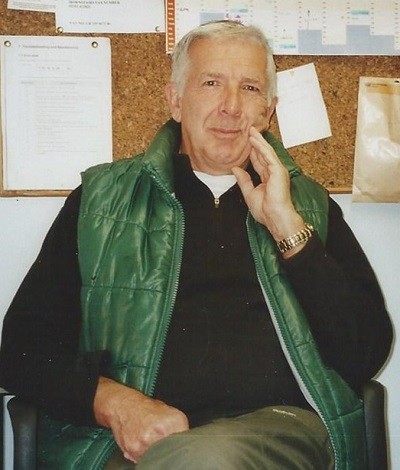
Chocolate bars by Robin Hall
All the soldiers in Finchdean Road – which was my own patch – were given one milk chocolate bar each. Of course, never having seen chocolate before, or very little being four years old, I was a bit of a Patsy. I was sent along looking hungry and I gathered up quite a lot of this chocolate. I had six or seven bars of chocolate and I thought I was doing very well here until I came away and a bigger boy. I’ll tell you now, Robert Barnes took it all away from me. I assume he ate it. I’ve just heard that Robert Barnes has had to retire early through ill health with heart trouble, so I don’t know if it was the chocolate that started it!
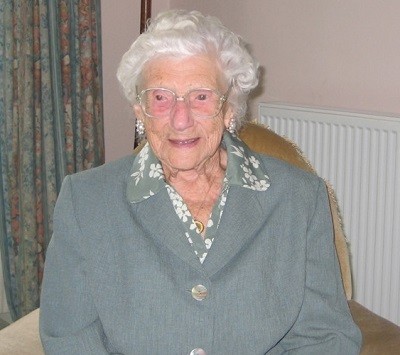
Courting couples – Missing butter by Doris Hearn
At the corner of the shop it was always called ‘the courting couples wall’: the wall was heated because of the Bakehouse where the bread was being cooked during the night. The wall stayed warm during the day and that’s where the courting couples used to be.
He (the shopkeeper), always dressed the counter when the Anchor butter came in. Every Friday there was a pound of butter missing off the show. So he thought there is somebody having this, He cut off two pieces of wood the size of the butter and wrapped it in butter paper, dressed up at the counter with this, then one Friday the wood went, and we never saw the lady after that.
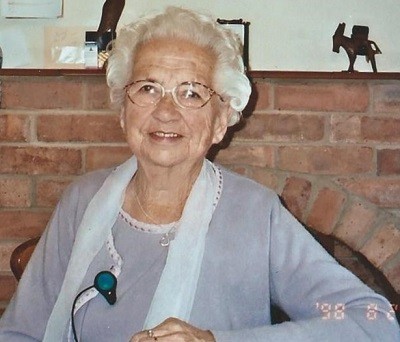
Tea, nappies and the King by Vera Newland
This is what I remember about the troops; they were all parked up the Horndean Road, all around the Memorial and all down Whichers Gate Road. We also had a pillbox at the top of the road. When my sister used to have a sleepover at night, when she went home in the morning to get all her things for work, we made a great big jug of tea and she used to take it out and give it to the Troops that were over at the Memorial. They were so grateful and always used to bring the jug back in the morning. One day when I was hanging out Sue’s nappies on the line, one of them come down and says, “I’ve done this before, so I’ll give you a hand”. He gave me a hand hanging the nappies up which I thought was quite funny you know. They were very nice chaps and our hearts used to go out to them all because the next day they had probably gone, and you didn’t see them anymore. I often wondered what happened to them all, but there you are, that’s life. When the King came to inspect the troops, we all went up to the Staunton Arms on the corner there. Sue was a couple of months old then so as the King come down in his car, I took one of her nappies out – a lovely white nappy – and I waved it to him. He put his hand up and waved back, so that’s my memory of seeing the King.
Editorial: First entered on to the Website in February 2020
